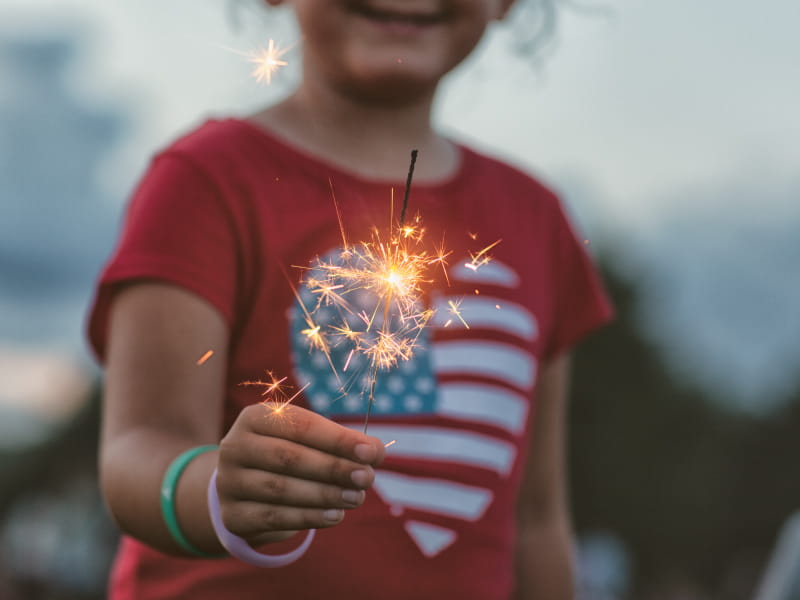How to have a safe Independence Day amid COVID-19
By American Heart Association News

Independence Day weekend is usually all about celebrating life, liberty and the pursuit of happiness. But as cases surge across much of the nation, people in the United States may be questioning how to commemorate the day safely.
So far this week, COVID-19 cases in the U.S. topped 2.6 million, with nearly 130,000 deaths, according to the Johns Hopkins University tracker. Many more states are reporting increases in new cases than decreases.
People looking for an old-fashioned Fourth of July celebration will have to reconsider: Fireworks spectaculars from Massachusetts to Florida to California have been canceled, and the fast-changing situation means would-be revelers will want to first check with local health authorities and local events organizers. For those who attend fireworks displays in their community, experts suggest finding a spot to watch from the car, with guaranteed physical distancing.
Wondering whether going to a holiday gathering is worth the risk? Guidelines from the Centers for Disease Control and Prevention say the larger the crowd and the longer the interaction, the higher the potential for catching or spreading COVID-19. The risk in each area also rises with that community's level of transmission.
So, if you're thinking of getting away from it all, the CDC's travel advice says to be aware of the level of COVID-19 at your destination – and to remember you can be a spreader without showing symptoms. You'll want to keep at least 6 feet away from others when you travel and wear a mask in public places. And remember that even on a car trip, you'll need to use caution when you stop for gas or bathroom breaks. Bring plenty of sanitizing wipes to use in public restrooms.
The CDC and other experts endorse getting outside and staying active but avoiding crowded areas. But make sure to rely on trustworthy information, not rumors: Experts say COVID-19 is not just the flu. You can catch the coronavirus at the beach. Masks are safe and slow its spread.
No matter how you spend Independence Day, wash your hands often, stay physically distant, wear a mask, and avoid closed spaces, crowded places and close in-person conversations.
And whether you're at home or hitting the road, remember in an emergency – such as with symptoms of a heart attack or stroke – you need to call 911. Doctors say that truth remains self-evident.
Editor's note: Because of the rapidly evolving events surrounding the coronavirus, the facts and advice presented in this story may have changed since publication. Visit Heart.org for the latest coverage, and check with the Centers for Disease Control and Prevention and local health officials for the most recent guidance.
If you have questions or comments about this story, please email [email protected].
More resources and information about COVID-19
- Watch a special episode of House Calls: Real Docs, Real Talk live at 11 a.m. CDT July 2
- As COVID-19 throws wrench into vacation plans, achieve travel’s health benefits at home
- Life after lockdown should start with this healthy to-do list
- Is it safe to go to the hospital during COVID-19 pandemic? Doctors say yes
- Keep your immune system in top shape with these tips
- Coronavirus precautions for patients and others facing higher risks
- Common questions about the virus and your safety and health





